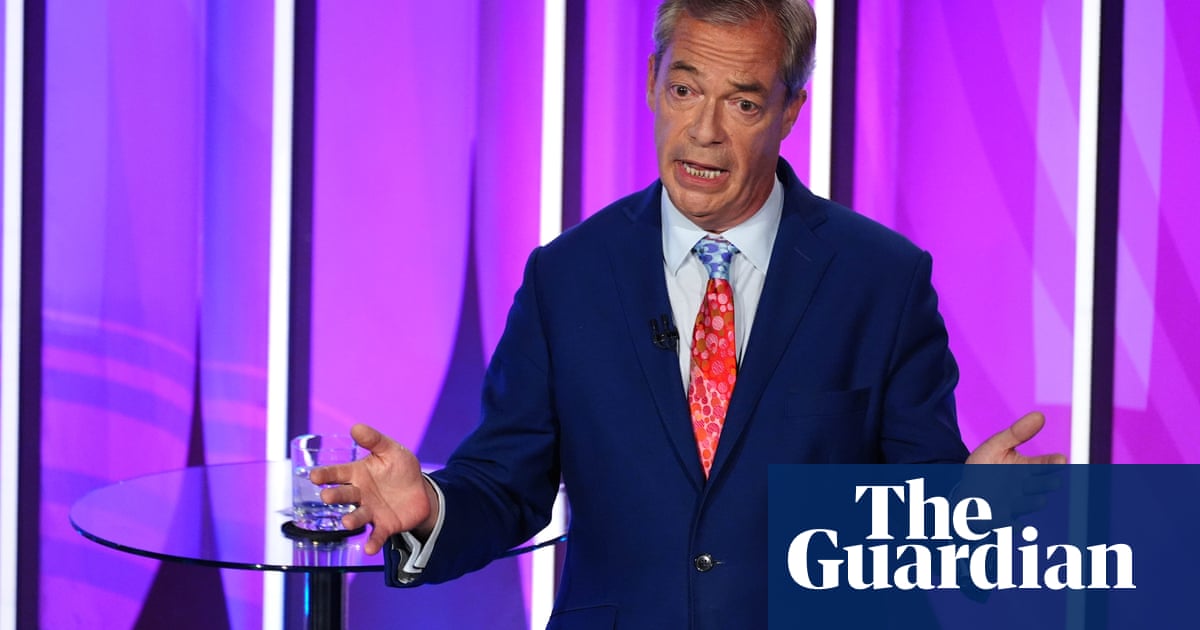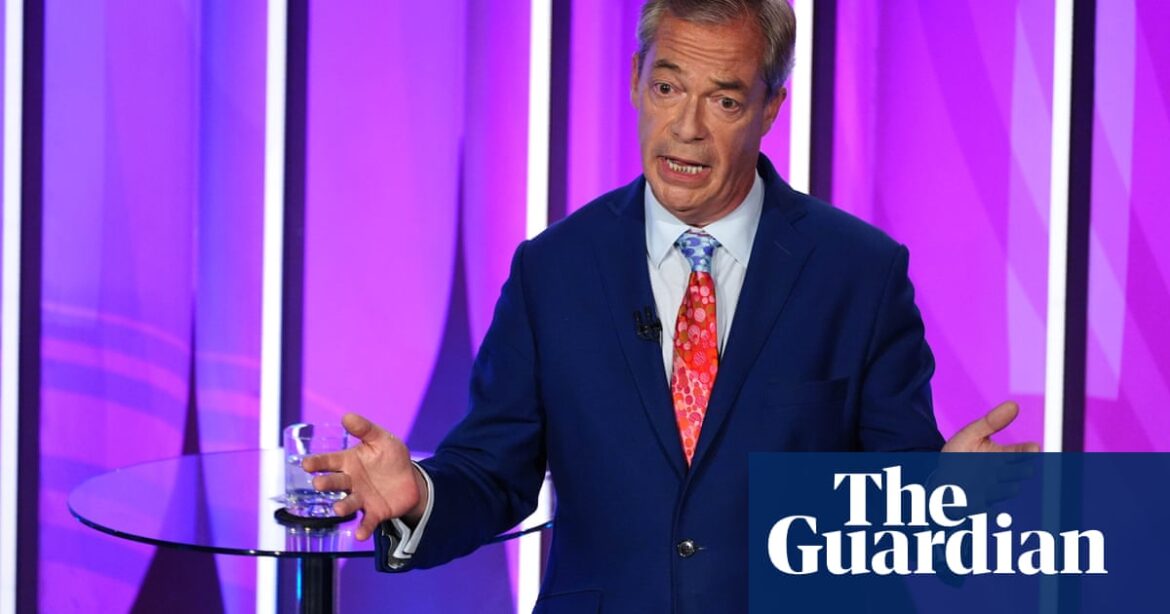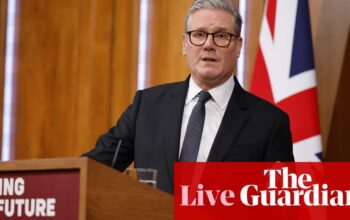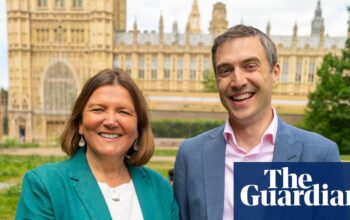
Nigel Farage has announced he is boycotting the BBC, accusing the broadcaster of bias over his reception on Friday night’s Question Time.
The Reform leader took part in a leaders’ special episode, a half-hour Q&A session with a live audience, in which he was heavily criticised. One audience member called him a racist and another asked why his party attracted extremists.
Farage disowned three candidates while on the show after being presented with their reportedly offensive remarks, saying he wanted “nothing to do with them”. A Reform spokesperson later confirmed to the corporation they had been dropped.
But on Saturday afternoon, Farage said he would no longer appear on the BBC, claiming he had been treated unfairly by being handed a biased audience.
Writing on X, he said: “I have just been invited to appear on Laura Kuenssberg. I’m refusing until the BBC apologises for their dishonest Question Time audience.
“Our state broadcaster has behaved like a political actor throughout this election. Reform will be campaigning vigorously to abolish the licence fee.”
A BBC spokesperson said: “We refute these claims. Last night’s Question Time audience was made up of broadly similar levels of representation from Reform UK and the Green party, with the other parties represented too.
“There were also a number of people, with a range of political views, who were still making up their mind.”
Essex police on Friday announced it was investigating racist and homophobic comments made by Reform campaigners in footage revealed by a Channel 4 undercover investigation.
Speaking on Question Time, Farage described comments made by those affiliated with the party – such as calling the prime minister a “fucking [p-word]” – as a “tirade of invective abuse”.
But he suggested Andrew Parker, the activist who made the slur, may have been a paid actor. The party later sent a letter to the Electoral Commission claiming Channel 4 had interfered in the election, with the party’s secretary Adam Richardson claiming it was “entirely evident that Mr Parker was a plant”.
He added: “The Channel 4 broadcast has clearly been made to harm Reform UK during an election period and this cannot be described as anything short of election interference.”
Richardson said he had also made a formal complaint to Essex police on Farage’s behalf.
Channel 4 hit back at the claims Parker was given cash, with a spokesperson for the broadcaster saying: “We met Mr Parker for the first time at Reform UK party headquarters, where he was a Reform party canvasser.”
Parker had earlier denied he had been paid by Channel 4, and said that his acting work was separate from his volunteering for Reform. But on Saturday told the PA news agency: “It’ll all come out in the papers, what’ll come out is the truth”.
Rishi Sunak had reacted with outrage to the slur, telling broadcasters: “My two daughters have to see and hear Reform people who campaign for Nigel Farage calling me an effing [P-word]. It hurts and it makes me angry, and I think he has some questions to answer.
“I don’t repeat those words lightly. I do so deliberately, because this is too important not to call out clearly for what it is.”
He added: “When you see Reform candidates and campaigners seemingly using racist and misogynistic language and opinion, seemingly without challenge, I think it tells you something about the culture in the Reform party.”
The prime minister was supported by Keir Starmer, who censured Farage for failing to show leadership over tackling allegations of racism, and said he shared Sunak’s “disgust”.
The Channel 4 broadcast revealed Parker, who is canvassing in Farage’s target seat of Clacton, also used Islamophobic and other offensive language.
after newsletter promotion
The footage showed Parker telling the reporter, who was posing as an activist: “I’ve always been a Tory voter, but what annoys me is that fucking [P-word] we’ve got in. What good is he? You tell me, you know. He’s just wet. Fucking useless.”
He also advised the reporter to “emphasise ‘illegal’” if discussing migration with minority ethnic voters. Parker went on to call Islam “a cult”, saying: “We’re fucking kicking all the Muslims out of the mosques and turning them into Wetherspoon’s.”
On Friday, Farage said it was a “complete and utter set-up”, claiming Parker was an actor purporting to be a campaigner to “say vile things” and he had put on an act to undermine the Reform party.
Farage told ITV’s Loose Women that Reform had a problem because he had “destroyed the BNP [British National party]” and some of their extremist supporters had subsequently tried to join the party.
Parker said on Friday he was sorry for the comments. He added: “Of course I regret what I said. I’m old school. Christ, I’m not a racist. I’ve had Muslim girlfriends. It was typical chaps-down-the-pub talk.”
He at the time insisted he was a genuine Reform supporter, despite Farage casting doubt on his identity because of his career as an actor. He said his acting work was separate to what he did as a volunteer for the party.
On Saturday, Reform told the BBC that Edward Oakenfull, who is standing in Derbyshire Dales, Robert Lomas, a candidate in Barnsley North, and Leslie Lilley, standing in Southend East and Rochford, had been dropped.
But they will still appear on the ballot paper as Reform candidates as it is too close to the election to remove them. If any of the three were elected they would sit as independent MPs, the spokesperson added.
However, he said people should still vote for the candidates if they wished to register support for the party.
It is not the first time during the campaign that Reform supporters or candidates have got into trouble for their views on race. On Thursday, Reform withdrew support from Raymond Saint, its candidate in Basingstoke, after the Guardian informed the party he had been on a list of members of the BNP.
Earlier this month, Grant StClair-Armstrong, Reform’s candidate in North West Essex, resigned after it was discovered he had previously encouraged people to vote for the BNP.
On Saturday, Starmer said of Farage: “If you lead a party you set the tone, and the culture, and the standards of your party, and I don’t think he’s done enough in terms of leadership.”
And he expressed sympathy for Sunak, adding: “I thought what he said about his daughters in particular was very powerful.”
Source: theguardian.com



